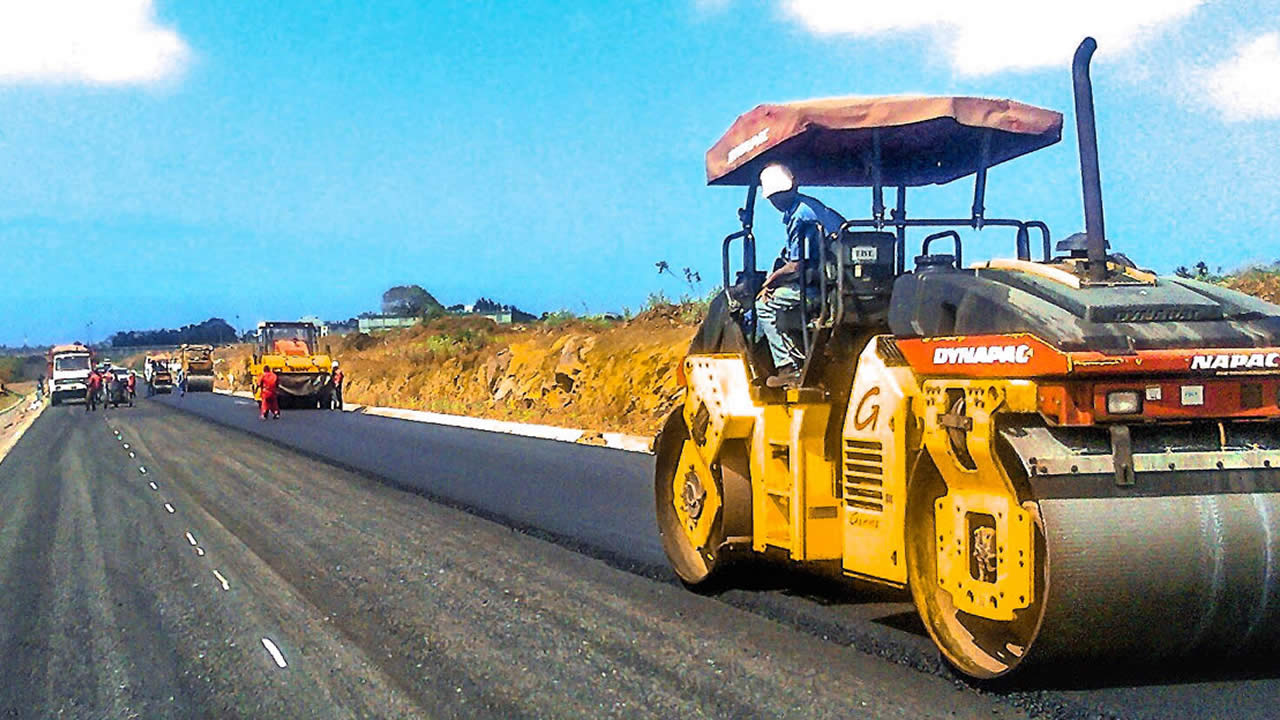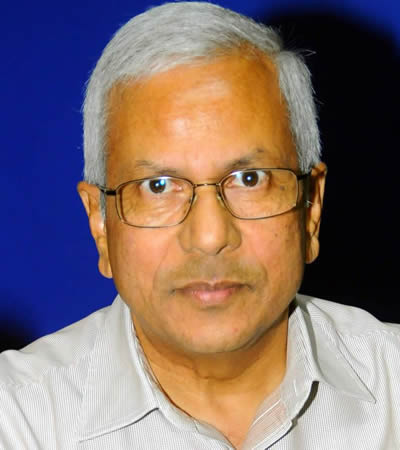
Public debt has reached the level of nearly Rs 325 billion, representing 65% of Gross Domestic Product. The Internal Monetary Fund expects public debt to rise to 70% of GDB by 2020. While economic growth is unlikely to exceed 3.8% this year, the continuous fall of the rupee will soon trigger a rise in consumer prices as importers face a higher bill.
Panagora Marketing set the scene on Monday by communicating its new price list, showing a general rise in prices of all its dairy products. Is this an indication of what lies ahead in the consumer sector? The situation may not be so alarming yet, as the latest Consumer Price Index shows a downward trend from September to October 2019. But the continuous depreciation of the rupee is not good news for importers who would have no alternative but to pass on future extra costs to customers.
The rise of the dollar also means it will cost the country more to repay its external debts taken in USD. Fortunately, the bulk of the public debt, amounting to more than 75%, has been contracted in rupees. And this includes mostly long-term debts, in the form of bonds, with maturity as far as 25 years. Total public debt has already soared to Rs 325 billion, which is equivalent to 65% of GDP. According to the International Monetary Fund, given the public investment needs, the government’s debt target of 60% of GDP for financial year 2020/2021 is unlikely to be met without a significant policy adjustment. The IMF has urged a gradual fiscal consolidation beginning to enhance fiscal credibility and to put public debt on a declining path. It nevertheless expects the public debt to rise to 70% of GDP by 2020.
The debt-to-GDP ratio is the metric comparing a country's public debt to its gross domestic product. By comparing what a country owes with what it produces, the debt-to-GDP ratio reliably indicates the country’s ability to pay back its debts. A country able to continue paying interest on its debt, without refinancing, and without hampering economic growth, is generally considered to be stable. A study by the World Bank found that countries whose debt-to-GDP ratios exceeds 77% for prolonged periods, experience significant slowdowns in economic growth. It pointed out that every percentage point of debt above this level costs countries 1.7% in economic growth. This phenomenon is even more pronounced in emerging markets, where each additional percentage point of debt over 64%, annually slows growth by 2%.
Why have recourse to debt?
Many governments have become increasingly dependent on borrowing to finance public spending. Borrowing is necessary to finance capital investment, for example, infrastructural projects such as dams, roads, flyovers or the metro, to create economic and social benefits. However, it has increasingly become standard for governments in developing economies to borrow to pay day-to-day operating costs. In Mauritius, public debt has increased by nearly Rs 100 billion over the past five years. But as a result of the debt, the country has also seen a major boost in public infrastructure.
Types of debts
Rather than raising taxes to generate revenue for public expenditure, governments often issue debt in the form of bonds. These debts can be of long-term maturity and give a government sufficient leeway. However, interest must be paid to creditors and at maturity, the borrowed money must be repaid. According to debt data released by the Ministry of Finance, Treasury Bills and other short-term borrowings amount to Rs 28 billion, Treasury Notes at Rs 59 billion, 5-year Government bonds at Rs 62 billion and other long-term Bonds totaling Rs 107 billion. The country has also borrowed from external sources and has benefited from various lines of credit from friendly countries.
So how can public debt be eased?
While reducing debt and stimulating the economy are the general goals of most governments, achieving those objectives might appear to be mutually exclusive. This is because the government often has to borrow to stimulate the economy. One important way to reduce the burden of debt is to boost economic growth. As GDP expands, the debt to GDB ratio is automatically lowered. But achieving a higher growth is no ordinary feat. In 2015, the then Minister of Finance expected a growth of 5.3% in 2015 and 5.7% in 2016. However, Mauritius has had a timid annual growth below 4% during the past five years. The challenge of reaching a 5% growth is therefore enormous.
Is debt beneficial?
The view that deficits and higher public debt can be beneficial received an important boost via Olivier Blanchard’s 2019 presidential address at the American Economic Association. Blanchard’s analysis is based on a workhorse model of the economic theory which implies that an increase in government debt might be welfare-enhancing if the growth rate of the economy is higher than the interest rate. The exact result depends considerably on the available production technology, but the key condition for positive welfare effects is the difference between the growth rate and the interest rate. Blanchard also acknowledges that higher debt leads to higher risks. Experience shows that, above a certain threshold of debt, the interest rate on public debt increases with the debt level (as a percentage of GDP). This link between the cost of debt and the level of debt itself is not just a minor inconvenience. It has profound implications for high debt countries.
(Source: World Economic Forum)
| Indicator | 2010-2015 | 2016 | 2017 | 2018 | 2019 | 2020* |
| GDP Growth | 3.80% | 3.80% | 3.80% | 3.80% | 3.70% | 3.80% |
| Price Index | 3.60% | 1.00% | 3.70% | 3.20% | 0.90% | 2.30% |
| Public debt/GDP | 58.20% | 65.00% | 64.30% | 66.20% | 68.70% | 69.40% |
| * Estimate | ||||||
Tourism figures look gloomy

Official figures indicate a declining tourism industry for the fourth month in a row. The number of arrivals has been falling since July. The number of tourists who visited Mauritius in October 2019 was 129,018 which is 3.8% lower than the figure for October 2018, when we received 34,052 visitors. Even on a cumulative basis, there is a decline of 0.6% with arrivals for the first 10 months of the year 2019 totalling 1,102,660 compared with the same period last year where the total arrivals were 1,109,118.
 Pierre Dinan : “Borrowing to invest is less criticised”
Pierre Dinan : “Borrowing to invest is less criticised”
Pierre Dinan, economist, in a statement to Défi Media, is of the view that the financing of electoral promises is likely to be made from the Consolidated Fund, which is maintained by the Accountant General, and from which various public payments, including civil servants’ salaries, social aids, subsidies and other local grants, are generally made. He adds that, for some years now, revenues are short of expenditure and the budget deficit will rise again. To finance the deficit, government will have to borrow again, through the sale of Treasury Bills and Government Bonds. He explains that running public debt should not be worrying as long as we borrow to invest.
| Top 20 countries with lowest debt | ||
| Rank | Country | 2019 Public Debt % of GDP (projected) |
| 1 | Brunei | 2 |
| 2 | Estonia | 8 |
| 3 | Russia | 13 |
| 4 | Botswana | 15 |
| 5 | DRC | 16 |
| 6 | China | 18 |
| 7 | Kosovo | 19 |
| 8 | Paraguay | 20 |
| 9 | UAE | 20 |
| 10 | Luxembourg | 21 |
| 11 | Saudi Arabia | 22 |
| 12 | Bulgaria | 23 |
| 13 | Kazakhstan | 24 |
| 14 | Uzbekistan | 24 |
| 15 | Guatemala | 26 |
| 16 | Nigeria | 26 |
| 17 | Chile | 26 |
| 18 | Kuwait | 26 |
| 19 | Peru | 27 |
| 20 | Switzerland | 28 |
| Top 20 countries with highest debt | ||
| Rank | Country | 2019 Public Debt % of GDP (projected) |
| 1 | Japan | 236 |
| 2 | Greece | 175 |
| 3 | Lebanon | 153 |
| 4 | Venezuela | 152 |
| 5 | Italy | 131 |
| 6 | Portugal | 119 |
| 7 | Singapore | 116 |
| 8 | Mozambique | 114 |
| 9 | USA | 108 |
| 10 | Belgium | 100 |
| 11 | France | 98 |
| 12 | Spain | 96 |
| 13 | Jordan | 94 |
| 14 | Cyprus | 94 |
| 15 | Bahrain | 92 |
| 16 | Jamaica | 92 |
| 17 | Puerto Rico | 92 |
| 18 | Belize | 91 |
| 19 | Egypt | 88 |
| 20 | UK | 85 |
 Dan Maraye:“We can easily save up to 25% of public funds”
Dan Maraye:“We can easily save up to 25% of public funds”
Dan Maraye, chartered accountant and former governor of the Bank of Mauritius, says one way to ensure sound delivery of electoral promises such as pension hike is to review the functioning of all ministries and government departments in order to eliminate unnecessary expenditure and make huge savings.
“We can start with the Audit report which already highlights where are the wastage of public funds. The government lifestyle must be reviewed,” he advocates. He adds that, for example, government can consider whether to reduce the number of foreign diplomatic missions and have one mission for a group of nearby countries. “If ministers really mean business, then we can achieve a lot. In my opinion, we can easily save 15 to 25% of public expenditure through major streamlining, which can then be directed to other purposes. The net result will also be an increase in efficiency in public services,” says Dan Maraye. He further explains that a committee should be set up, comprising of ministers, permanent secretaries and also people from the private sector, to jointly review the functioning of each government department. “Institutions offering duplication of services should be merged to reduce cost,” he says. Asked whether the country has reserved funds to be used for expenses, he says that there are many reserves available. He recalled how the government decided to use a reserve from the Bank of Mauritius. “I fully agree with using Central Bank reserve but solely for the purpose of repaying foreign debts.” He concludes that Mauritius has seen worse days but we managed to sail through safely, and we should succeed.
Views : Mauritius voting issues
In the shadows of the 7th November 2019 elections, many voters recently discovered that they had been removed from the ‘Voters Register’. They had all voted in the 2014 elections. The ‘2014 voters’ (as I shall call them) have resided continuously at the same address since 2014. None of the disqualifying criteria of s43 of the Constitution applies to them.
But the Electoral Office says in effect:
“Sorry…we have removed your Constitutional right to vote (see ss42.43 and 44 of the Constitution) because you did not answer your door in January 2019 when we called. You then failed to ask us to restore your constitutional right to vote. It’s your own fault and negligence.”
Nothing can be done because the Representation of the People Act (‘the Act’) requires the ‘Voters Register’ to be finalised by August each year.”
Was there a way to restore the ‘2014 Voters’ to the ‘Voters Register’ before 7th November 2019?
I invite the Electoral Commissioner to comment upon why he could not have used the provisions of ss36A and 39 of the Act to avoid disenfranchising the ‘2014 voters’ from exercising their constitutional right to vote.
My suggestion
Section 36A of the Act, in terms, enables the Electoral Commissioner to ask the Supreme Court to “order insertion in the register of the name of any person which has been inadvertently omitted from it…” (my emphasis).
I am not aware of any Mauritian legal precedent which gives the word ‘inadvertently’ other than its ordinary meaning. S36A was perhaps intended to remedy any ‘dérapage’ in the voter registration process which spans January to August each year.
In administering the Act, the Electoral Commissioner pays more than 2,500 people to visit every residence in January each year. The registration process then continues until August each year.
Such a convoluted and archaic process provides ample scope for errors, hence the need for a ‘roue de secours’ which the Electoral Commissioner could use to restore to the ‘2014 voters’ their constitutional right to vote.
The Electoral Commissioner could apply for the order to restore the ‘2014 voters’ to the list on an ‘ex parte’ basis. This means that the ‘2014 voters’ need not appear in Court.
All they should have to do is contact the Electoral Commissioner and ask nicely.
The costs of such an ‘ex parte’ application to be borne by the Government out of the Consolidated Fund: see: s38.
[Query how the Electoral Commissioner deals with our citizens who do not have a roof over their head or are hiding as squatters on someone else’s land?]
I also contend that some provisions of the Act are inconsistent with the cumulative work of the provisions of ss42,43 and 44 of our Constitution.
But that’s a more complicated discussion. Thank you for your attention. Let’s hope that the Electoral Commissioner will explain his position to the public which he has served so superbly over the years.
Roger De Robillard
 J'aime
J'aime














